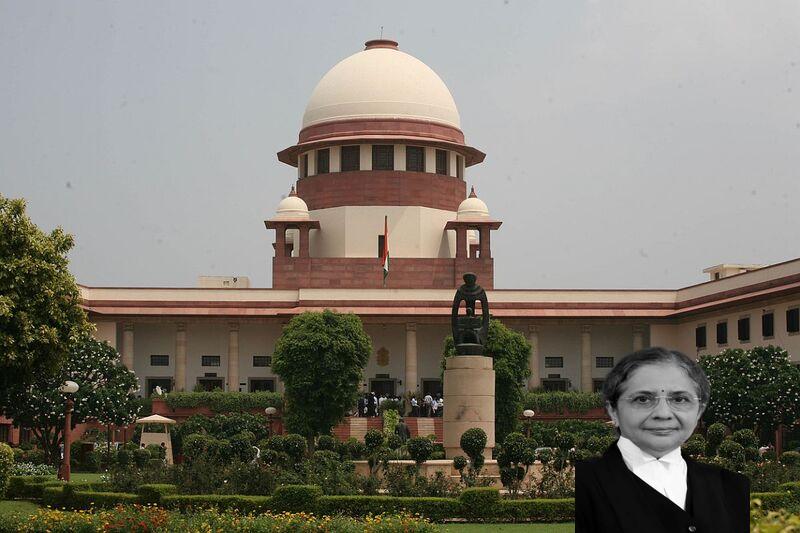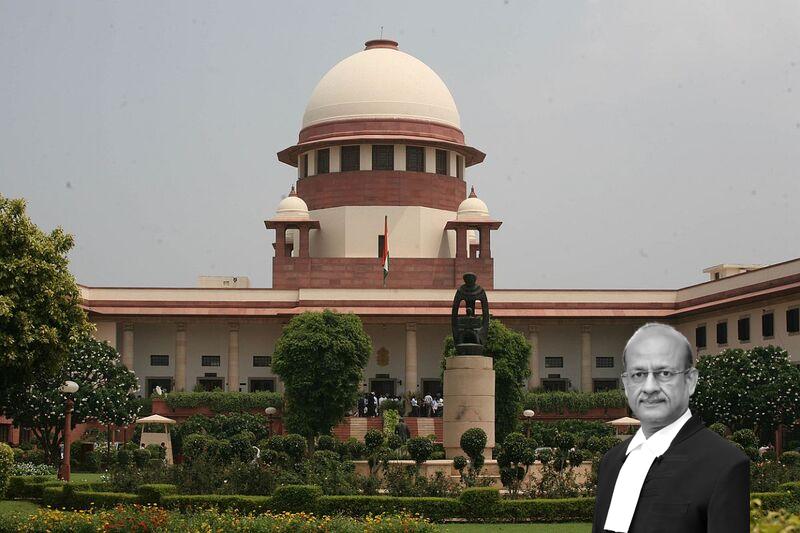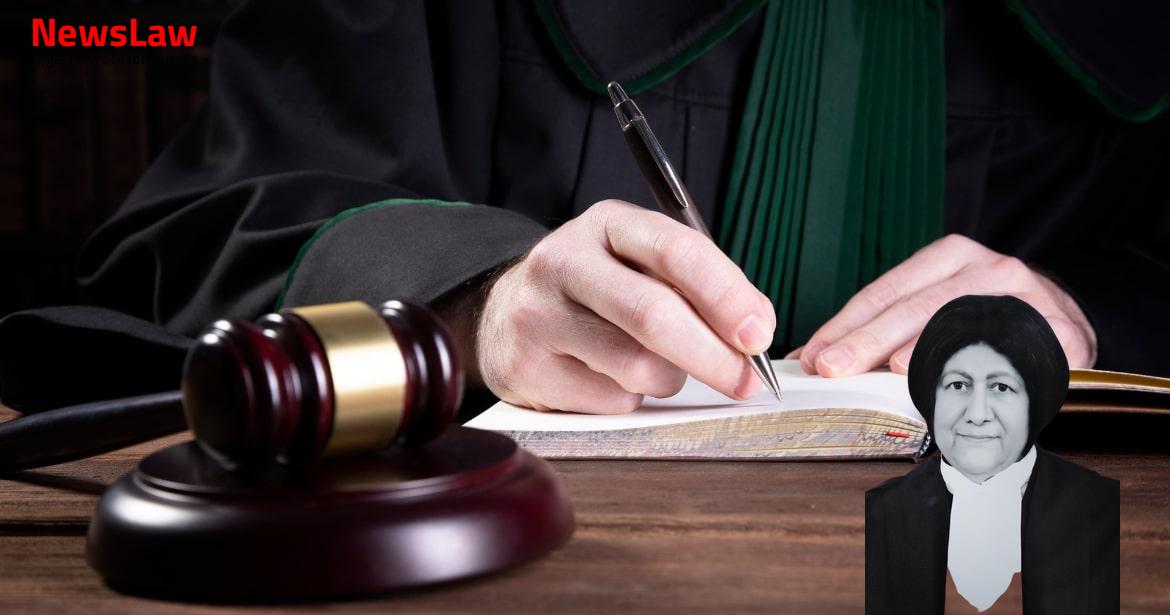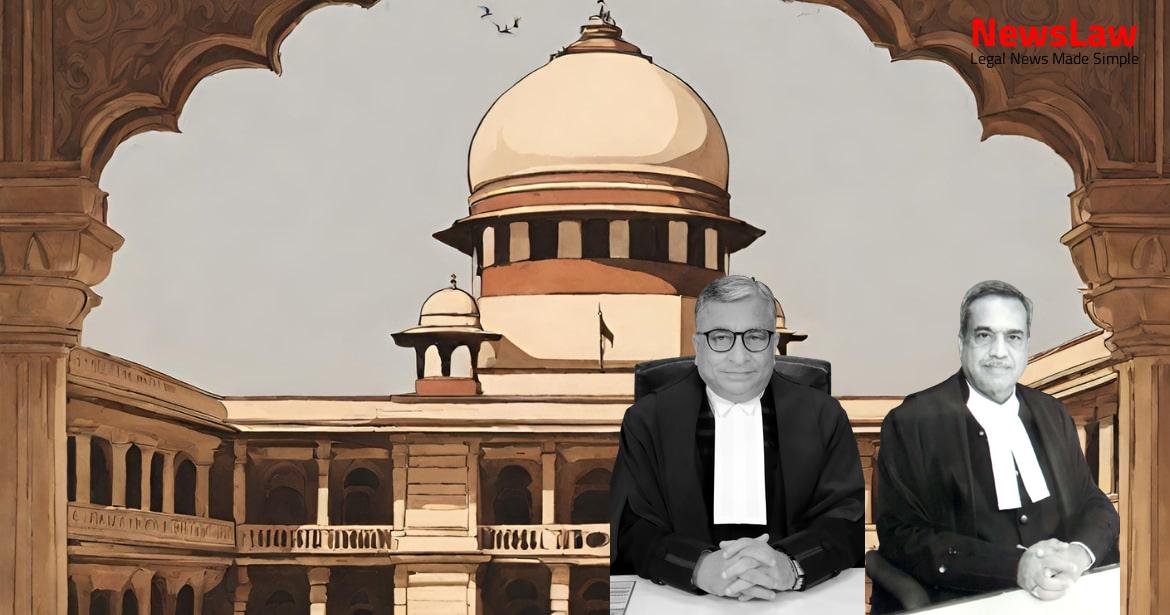However, as borne out from the open balloting for the Rajya Sabha seat, she did not cast her vote in favour of the alleged bribe giver and instead cast her vote in favour of a candidate belonging to her own party. The High Court by the impugned judgement declined to quash the criminal proceedings on the ground that the appellant had not cast her vote in favour of the alleged bribe giver and thus, is not entitled to the protection under Article 194(2). 7 The three-judge Bench hearing the present appeal was of the view that “having regard to the wide ramification of the question that has arisen, the doubts raised and the issue being a matter of public importance”, it required to be referred to a larger Bench, as may be considered appropriate. 2210-27/1998) were instituted before a Bench of five judges of this Court questioning the correctness of the decision in PV Narsimha Rao. Ramachandran, in his written submissions dated 17 September 2023, as well as in the course of the oral arguments, submitted that none of the contesting parties has challenged the ratio in PV Narsimha Rao (supra).
Raju Ramachandran that a reference is not warranted, though they disagree on the applicability of the judgement in PV Narsimha Rao to the present case. Having determined that the correctness of the decision in PV Narasmiha Rao does arise in the present case, it becomes necessary for us to determine as to whether prima facie reconsideration of the judgment in PV Narasimha Rao is warranted, and if the matter should be placed before a larger bench. 15 Article 105(2) of the Constitution provides as follows: “105(2) No member of Parliament shall be liable to any proceedings in any court in respect of anything said or any vote given by him in Parliament or any committee thereof, and no person shall be so liable in respect of the publication by or under the authority of either House of Parliament of any report, paper, votes or (2019) 3 SCC 39, paragraph 10 at page 79. Justice Bharucha was of the view that the nexus between the alleged conspiracy/bribe and the No Confidence Motion was explicit, the charge being that the alleged bribe takers had received bribes to secure the defeat of the No Confidence Motion in Parliament. To enable Members to participate fearlessly in parliamentary debates, Members need the wider protection of immunity against all civil and criminal proceedings that bear a nexus to their speech or vote. While imputing no such motive to the present prosecution, it is not difficult to envisage a Member who has made a speech or cast a vote that is not to the liking of the powers that be being troubled by a prosecution alleging that he had been party to an agreement and conspiracy to achieve a certain result in Parliament and had been paid a bribe.” 18 The learned Judge observed that he was conscious of the seriousness of the offence which the alleged bribe takers were said to have committed and that by reason of the lucre that they have received, they enabled the Government to survive. The minority recognized that while the object and purpose of Article 105(2) of the Constitution is to enable Members of Parliament to speak freely or to cast their votes without fear of consequences an interpretation that places Members of Parliament above the law would be repugnant to the healthy functioning of a parliamentary democracy. An interpretation of the provisions of Article 105(2) which would enable a Member of Parliament to claim immunity from prosecution in a criminal court for an offence of bribery in connection with anything said by him or a vote given by him in Parliament or any committee thereof and thereby place such Members above the law would not only be repugnant to healthy functioning of parliamentary democracy but would also be subversive of the rule of law which is also an essential part of the basic structure of the Constitution.
What would be the position if the agreement is that in lieu of the illegal gratification paid or promised the Member would speak or give his vote in Parliament in a particular manner and he speaks and gives his vote in that manner? If the construction placed by Shri Rao on the expression “in respect of” is adopted, a Member would be liable to be prosecuted on a charge of bribery if he accepts bribe for not speaking or for not giving his vote on a matter under consideration before the House but he would enjoy immunity from 11 prosecution for such a charge if he accepts bribe for speaking or giving his vote in Parliament in a particular manner and he speaks or gives his vote in Parliament in that manner. If the expression “in respect of” is thus construed, the immunity conferred under Article 105(2) would be confined to liability that arises out of or is attributable to something that has been said or to a vote that has been given by a Member in Parliament or any committee thereof. The immunity would not be available to give protection against liability for an act that precedes the making of the speech or giving of vote by a Member in Parliament even though it may have a connection with the speech made or the vote given by the Member if such an act gives rise to a liability which arises independently and does not depend on the making of the speech or the giving of vote in Parliament by the Member. According to the view of the learned Judge, the offence of bribery is complete against the receiver of a bribe, if he takes or agrees to take money for a promise to act in a certain way. Ray concurred with the judgment of Justice SC Agarwal. 24 We are inclined to agree with the submission of the Amicus Curiae and Mr Gopal Sankarnarayan, senior counsel that the view which has been expressed in the decision of the majority in PV Narasmiha Rao requires to be reconsidered by a larger Bench. The fundamental purpose and object underlying Article 105(2) of the Constitution is that Members of Parliament, or as the case may be of the State Legislatures must be free to 14 express their views on the floor of the House or to cast their votes either in the House or as members of the Committees of the House without fear of consequences.
In other words, in such a case, the immunity would be available only if the speech that has been made or the vote that has been given is an essential and integral part for the cause of action for the proceedings giving rise to the law; and (iii) Thirdly, the judgment of Justice SC Agarwal has specifically dwelt on the question as to when the offence of bribery would be complete. This aspect bearing on the constituent elements of the offence of a bribe finds elaboration in the judgment of Justice Agarwal but is not dealt with in the judgment of the majority. 27



